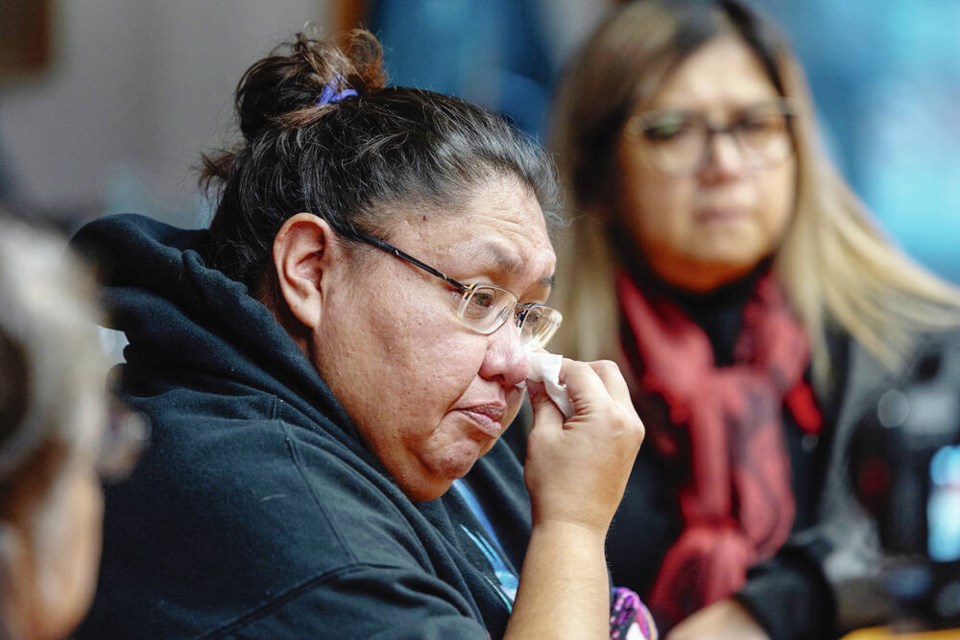Jessica George spent nine years separated from her children after they were apprehended by provincial authorities.
Three of her children were taken by the Ministry of Children and Family Development, she said, and a fourth child was apprehended years later, just days after she was born.
With the help of Cowichan Tribes’ children and family services, Lalum’utul’ Smun’eem (pronounced La-lum utal Smun-am), she was able to regain custody of all four, now ages six to 15.
Now that they’re finally home with her and her husband, George said she feels complete. “I have my babies around me all the time now,” she said Thursday at Cowichan Tribes council chambers in Duncan, fighting tears.
George is one of many parents assisted by Lalum’utul’ Smun’eem in their efforts to regain custody of their children. More than 40 Cowichan children apprehended by the province have been reunited with their families in the last three years.
Lalum’utul’ Smun’eem currently operates under the authority of the provincial government, which limits its ability to support families according to Cowichan teachings, said Chief Lydia Hwitsum.
“There was still a sense of prejudice against our families that’s been built up over time and the stereotypes that have supported the Crown in their removal of our children,” said Hwitsum, whose traditional name is Xtli’li’ye.
The nation is now seeking to take over full control of child and family services for its members, in order to work with families to keep them together.
Cowichan Tribes members will begin voting Friday online on whether to go ahead with the plan, culminating with an in-person vote on Nov. 24.
“We’re saying, if there’s an issue, let’s bring the family together. Let’s recognize there are intergenerational harms at residential school,” Hwitsum said. “And the better way to do is to build those supports, and lift up our families, and assume that we’re capable of caring for our children.”
The proposed law was made possible by the federal government’s introduction of Bill C-92 in 2019, which allows Indigenous groups to assume full jurisdiction over child and family services.
Indigenous children are vastly over-represented in foster care in Canada, making up 53.8 per cent of children under 14 in care, despite the fact they are just 7.7 per cent of the population under 14, according to 2021 census data.
Lalum’utul’ Smun’eem has not removed any children from their parents in the past two years, instead working with families to create a plan to keep them together, with support from extended relatives, said Addie Price, executive director of Lalum’utul’ Smun’eem, whose traditional name is Suleentuneet.
In information distributed about the plan, the Tribes says it will continue to be fully funded by provincial and federal governments, and receive additional funding for new services.
For George, the turning point came when her file was transferred from B.C.’s Ministry of Children and Family Development to Lalum’utul’ Smun’eem.
“I was leery of telling them things. They were judgmental of me,” she said of ministry workers.
Working with Lalum’utul’ Smun’eem, she felt supported and trusted that they wanted her family to be reunited.
She went through courses on anger management, grief and loss, and parenting.
George thinks things would have gone differently for her family if she had been working with Lalum’utul’ Smun’eem from the start.
“My kids would have been home sooner,” she said.



